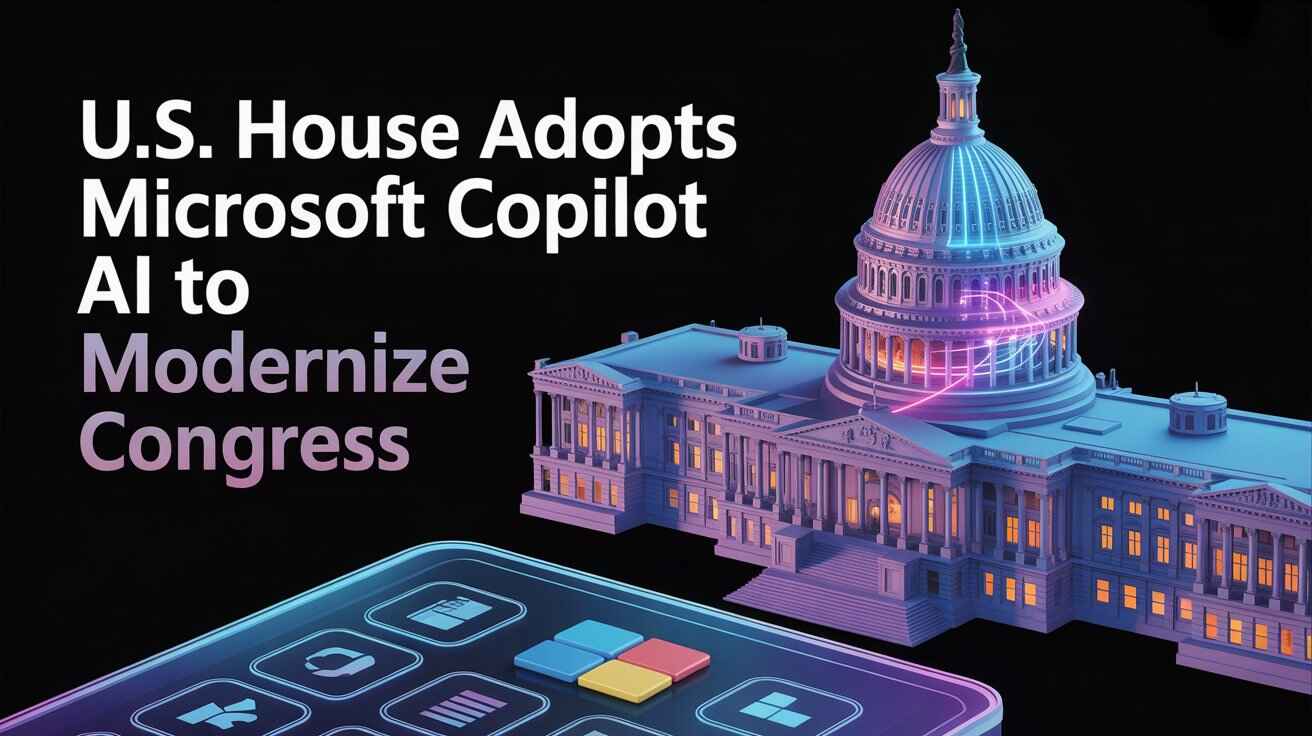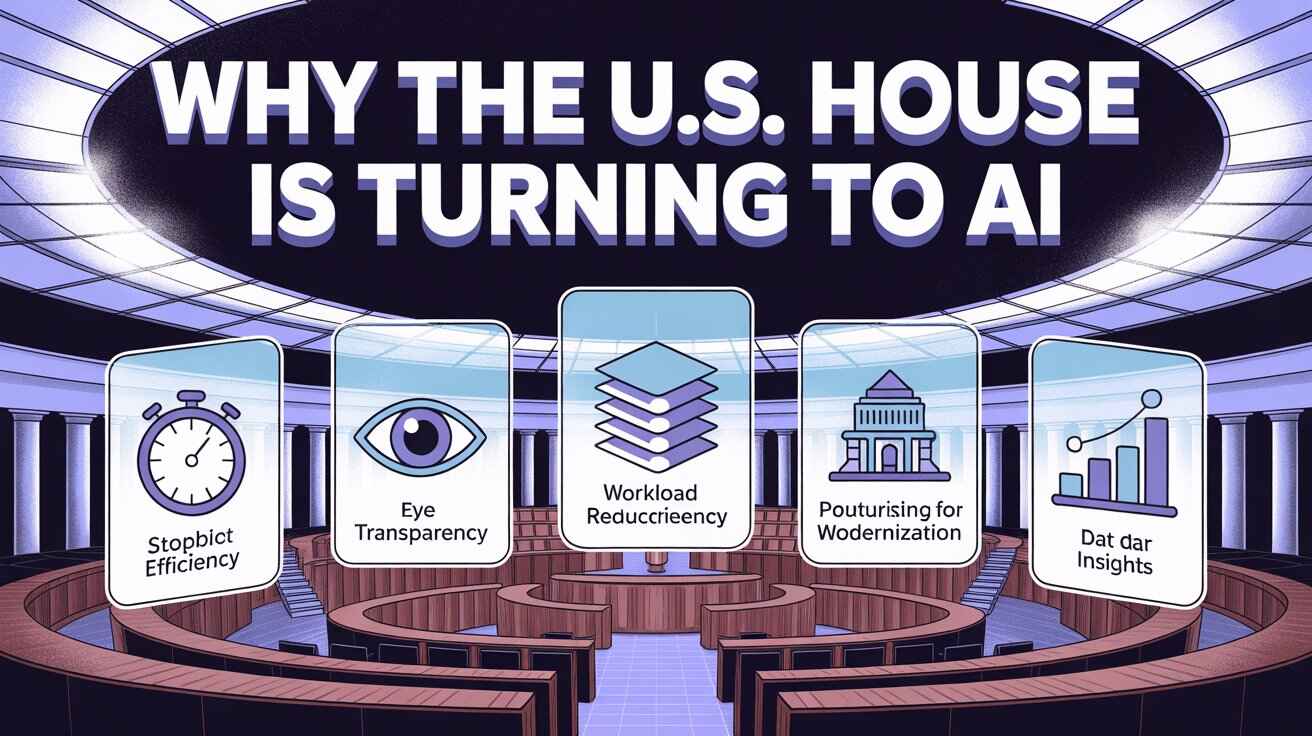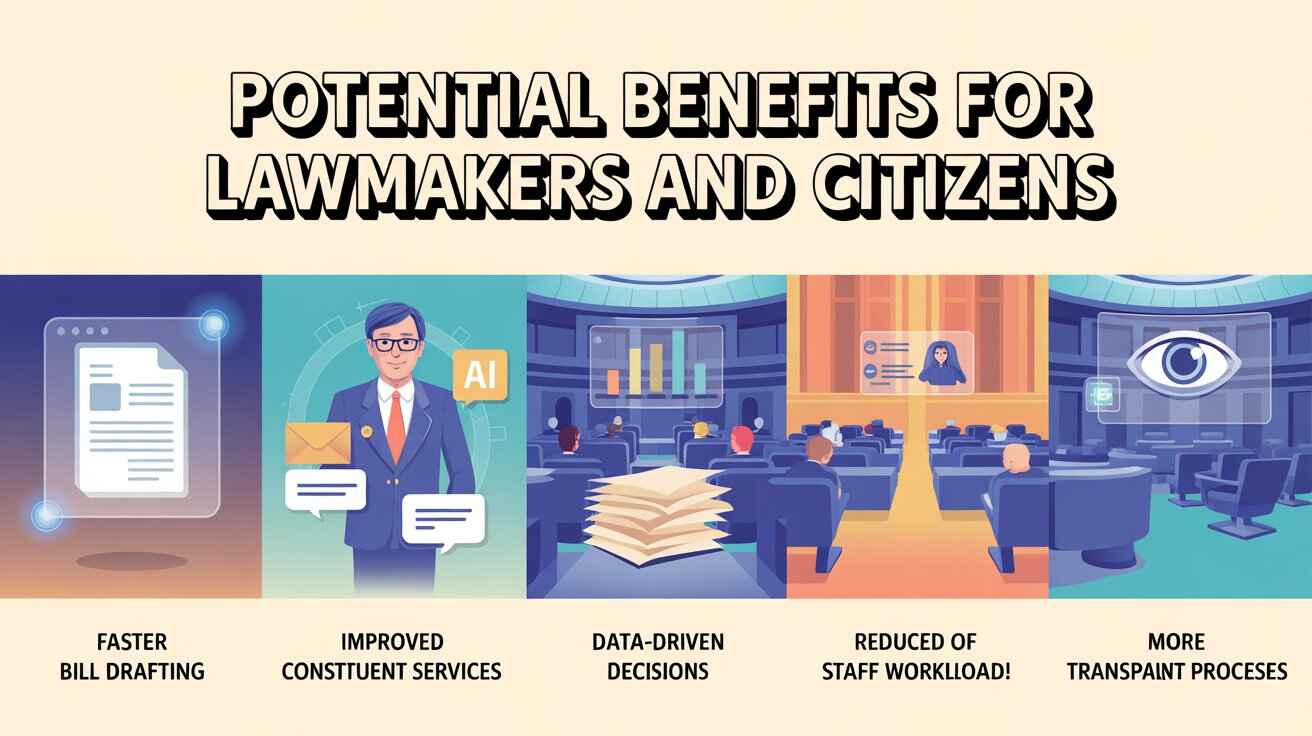Artificial Intelligence (AI) is no longer just a tool for tech companies, startups, or private industries—it’s now making its way into the very heart of democracy. In a groundbreaking move, the U.S. House of Representatives has adopted Microsoft Copilot AI to support legislative operations.
This decision marks one of the most significant steps in bringing advanced AI into government processes. With a focus on efficiency, transparency, and modernization, Congress is signaling its readiness to embrace digital transformation while also setting rules for responsible AI use.
But what does this mean for lawmakers, citizens, and the future of governance? Let’s break it down.
What Is Microsoft Copilot AI?
Microsoft Copilot AI is an AI-powered productivity assistant integrated into Microsoft 365 apps like Word, Excel, Outlook, and Teams. It can:
-
Draft, summarize, and edit documents.
-
Generate reports, memos, and meeting notes.
-
Analyze data for insights and trends.
-
Provide recommendations based on large datasets.
-
Automate routine tasks like scheduling, reminders, and formatting.
For everyday professionals, Copilot is a timesaver. For Congress, it could be revolutionary. Imagine hundreds of staffers and lawmakers managing legislative documents, policy drafts, schedules, and reports. Copilot AI promises to streamline these tasks, giving Congress more time to focus on policy decisions rather than paperwork.
Why the U.S. House Is Turning to AI
Congress handles an overwhelming amount of information daily. From drafting bills and reviewing amendments to answering constituent requests and managing schedules, the workload is massive.
By adopting Microsoft Copilot AI, the U.S. House aims to:
-
Improve Efficiency – Copilot can speed up routine tasks like preparing summaries of long bills or generating quick talking points.
-
Enhance Transparency – By organizing data and providing real-time insights, AI can help lawmakers make more informed decisions.
-
Reduce Administrative Burden – Staffers spend countless hours on repetitive work. AI can handle much of it, allowing staff to focus on strategy.
-
Modernize Operations – Congress often lags behind the private sector in adopting new technology. Copilot bridges that gap.
This shift reflects a growing recognition that AI is not just optional—it’s essential for modern governance.
Legal and Data Protections in Place
Naturally, introducing AI into government raises serious security and privacy concerns. Sensitive data like constituent records, legislative drafts, and private communications must be safeguarded.
To address this, the U.S. House is deploying Microsoft Copilot AI with enhanced legal and data protections, including:
-
Data Sovereignty – Congressional data will be kept within U.S. government-controlled systems.
-
Strict Privacy Rules – Copilot will not use House data to train external models.
-
Audit Trails – Every AI-generated action will be logged for transparency and accountability.
-
Bias Monitoring – Systems will be monitored to detect and mitigate potential AI bias.
By putting these safeguards in place, Congress hopes to balance innovation with responsibility.
Linked to the Congressional Hackathon
The timing is no coincidence. The adoption of Microsoft Copilot AI aligns with the Congressional Hackathon, an event focused on bringing innovation into legislative processes.
This year’s Hackathon emphasizes AI-powered modernization, with sessions exploring:
-
How AI can improve communication between lawmakers and citizens.
-
How automation can reduce bottlenecks in legislative drafting.
-
How transparency tools can help track amendments, spending, and policymaking.
By tying Copilot’s rollout to this event, Congress is not just adopting AI—it’s publicly embracing a culture of technological experimentation.
Potential Benefits for Lawmakers and Citizens
The arrival of Microsoft Copilot AI could reshape the way Congress operates. Here are some of the biggest potential benefits:
1. Faster Bill Drafting and Summarization
Bills often stretch to hundreds of pages. Copilot can summarize them in plain language, helping lawmakers and even the public understand key provisions.
2. Improved Constituent Services
Responding to citizen concerns is a core duty of Congress. Copilot can draft replies, manage casework, and track trends in constituent requests.
3. Data-Driven Decision Making
With access to vast amounts of data, Copilot can provide lawmakers with quick insights on the economic, social, or environmental impact of policies.
4. Reduced Workload for Staffers
Legislative aides often spend hours formatting memos, preparing reports, and scheduling meetings. Copilot can automate much of this, freeing staff to focus on research and policy.
5. More Transparent Processes
AI-powered dashboards could make legislative actions easier to follow, increasing trust and accountability.
Challenges and Concerns
While the move is groundbreaking, it’s not without risks. Critics have raised several concerns:
-
Data Security: Even with safeguards, the risk of data leaks or breaches remains.
-
Bias in AI: Copilot AI, like all models, can reflect biases in its training data. In a political environment, this could be problematic.
-
Over-Reliance on AI: There’s a danger that lawmakers may depend too heavily on AI outputs instead of exercising independent judgment.
-
Public Trust: Some citizens may view AI in government with skepticism, fearing it reduces human accountability.
Addressing these concerns will be key to ensuring that AI strengthens, rather than weakens, democratic processes.
Global Implications: Could Other Governments Follow?
The U.S. House’s adoption of Microsoft Copilot AI could set a global precedent. Governments worldwide face similar challenges: outdated systems, information overload, and pressure to modernize.
If Copilot proves successful in Congress, other parliaments and legislative bodies may consider adopting AI tools. This could spark a new wave of digital transformation in governance, much like how e-government initiatives reshaped public services in the 2000s.
What Experts Are Saying
Tech analysts and policy experts are watching this move closely. Many see it as a necessary step forward, while others remain cautious.
-
Proponents argue that Congress cannot afford to stay stuck in outdated processes while the world moves ahead with AI.
-
Skeptics warn that without strict oversight, AI could create new problems—such as misinformation, lack of transparency in AI outputs, or unequal access to technology.
The general consensus? AI in governance is inevitable—but it must be implemented carefully.
The Future of AI in Government
The U.S. House’s adoption of Microsoft Copilot AI is only the beginning. In the near future, we could see AI used in:
-
Policy Analysis: Predicting the long-term effects of proposed legislation.
-
Budget Oversight: Monitoring spending in real time for fraud and inefficiencies.
-
Constituent Engagement: Offering multilingual, AI-driven support to citizens.
-
Public Transparency Tools: Providing easy-to-understand summaries of bills and votes for the public.
If implemented responsibly, these tools could help make government more efficient, accessible, and responsive.
Also Read
Microsoft Prepares Windows AI Labs to Test New AI Features in Windows 11 Apps
Microsoft’s AI Shopping Agent: The Future of Brand-Driven E-Commerce Interactions
Conclusion: A New Chapter for Congress
The decision to bring Microsoft Copilot AI into the U.S. House of Representatives is more than a tech upgrade—it’s a symbol of Congress stepping into the digital age.
By adopting AI, lawmakers are acknowledging the need to keep pace with a rapidly changing world. The move could boost efficiency, transparency, and citizen engagement, while also raising important questions about security, bias, and oversight.
One thing is clear: the future of governance will not be human-only—it will be a partnership between humans and AI.
✅ Key Takeaway:
The U.S. House adopting Microsoft Copilot AI represents a turning point in government modernization. With proper safeguards, it could set a global standard for how AI can support democracy in the 21st century.



